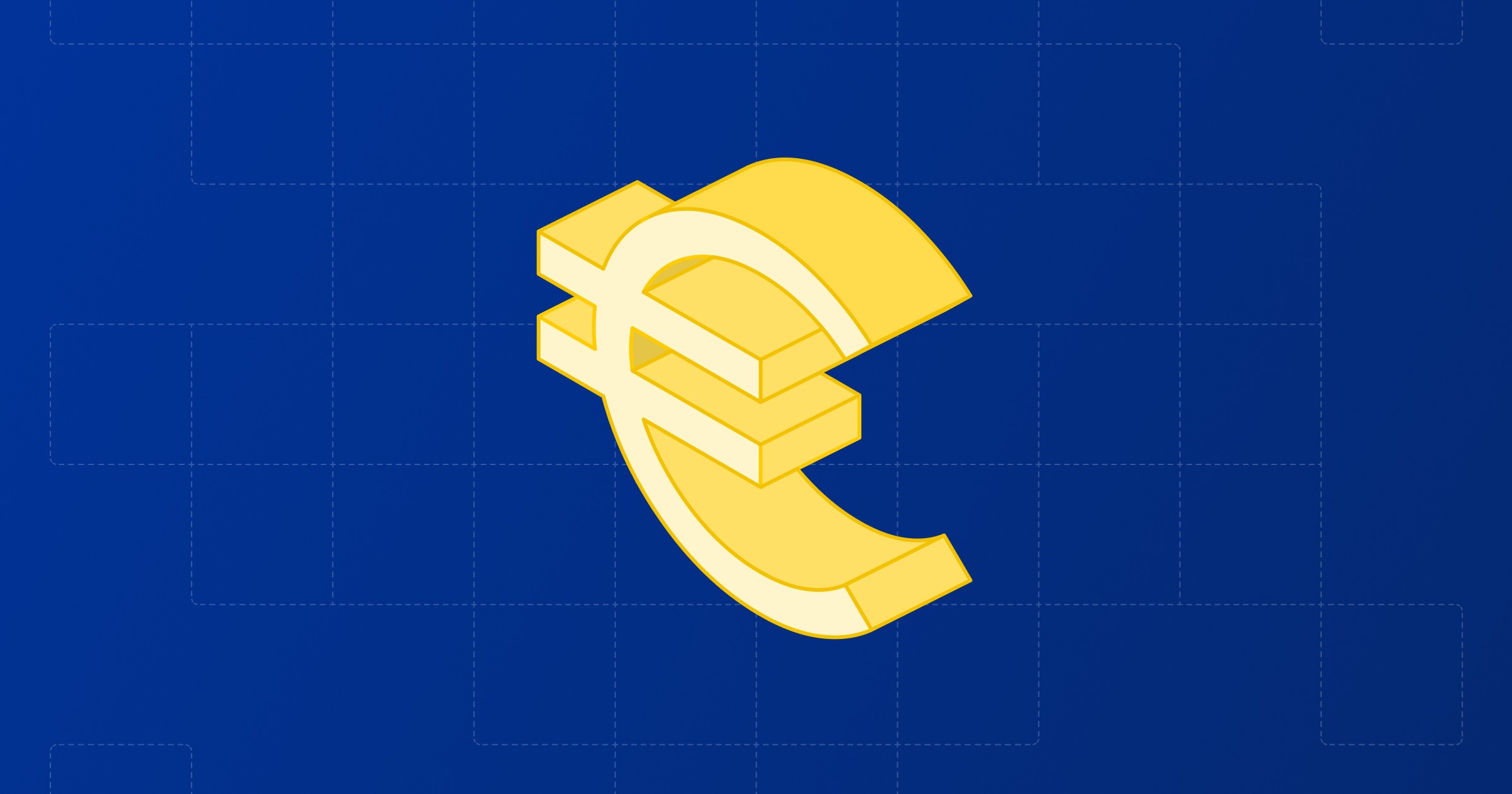Written by
Published on
Sep 22, 2024
Topic
Cybersecurity
Data security compliance means businesses protect sensitive data and follow the rules. It’s the key to avoiding breaches and fines. This is especially important for tech startups and VC-backed companies, which often grow quickly and may not focus on compliance early on. But as these small companies scale and handle more sensitive data, getting compliance right becomes crucial for earning trust from customers and investors.
Having a strong compliance plan isn’t just about avoiding fines and breaches, it’s also a way to show that your company takes security and governance seriously, which can really set you apart in a heavily regulated market.
Compliance is so important that 87% of organizations say they’ve faced problems due to either inadequate compliance practices or the lack of a response-driven approach to compliance, according to Drata.
The good news is that things are getting easier: a study published by Accenture indicates that 93% of respondents feel that new technologies, such as artificial intelligence and cloud computing, make compliance simpler by automating tasks that people used to do manually.
In the following article, you’ll find everything you need to know about data security compliance, regulations, industry-specific standards, and much more.
What is Data Security Compliance?
Data security compliance is business critical, it affects legal, reputational, and operational aspects. Good data security compliance focuses on reducing errors and preventing breaches, legal issues, and reputation damage. With the explosion of data and cyber threats, protecting sensitive data is more important than ever for data security and compliance.
VMware states that data compliance "refers to processing, storing and protecting data while abiding by particular laws, rules, standards set by the industry or internal policies."
Recently, the FTC imposed a $7 million fine on Cerebral for mishandling sensitive health data and misleading consumers about its cancellation policies. This case highlights the serious consequences of non-compliance, especially for virtual healthcare providers, underscoring the need for strong legal and compliance strategies.
Similarly, last year, Irish regulators fined TikTok €345 million for breaching children’s privacy laws. TikTok failed to obtain parental consent for processing personal data of children under 13, violating GDPR requirements. This case illustrates the importance of robust compliance frameworks for data privacy.
These examples demonstrate that following data security regulations, like SOC 2 and GDPR, can protect startups from financial and reputational penalties, while building trust and improving operational efficiency. These regulations help prevent data leaks and misuse. Modern compliance frameworks not only mitigate data breach risks but also ensure future readiness in an evolving regulatory landscape.
Data security compliance involves adhering to standards and laws to secure data, protect against breaches, and implement key strategies like encryption and access controls. Industry-standard frameworks provide guidelines that help mitigate risks and prepare businesses for future regulations.
Data Security Compliance vs Data Compliance
Data security compliance focuses on protecting sensitive data from breaches, loss, and unauthorized access. Data compliance is broader than that, it covers legal, regulatory, and operational data requirements beyond security. While data security compliance is important to protect data, data compliance is to protect regulated and sensitive data from unauthorized use.
The main difference is the scope: data security compliance protects data, and data compliance covers broader regulatory requirements. For example, in education, data compliance is important for managing student data and ensuring the privacy and security of records.
Companies benefit from data compliance by protecting customer data and having efficient data management systems.
Key Data Protection Regulations
Key data protection regulations are the General Data Protection Regulation (GDPR), the Health Insurance Portability and Accountability Act (HIPAA), and the California Consumer Privacy Act (CCPA). These regulations, along with compliance frameworks like SOC 2 and ISO 27001, require measures to protect personal and sensitive data, helping companies meet strict compliance requirements.
General Data Protection Regulation (GDPR)
GDPR is focused on personally identifiable information (PII). Organizations must get explicit consent before collecting personal data. Non-compliance can result in fines of up to 4% of annual global turnover or EUR 20 million, whichever is higher.
Not all companies need to appoint a Data Protection Officer under GDPR, this requirement only applies to certain organizations. GDPR’s focus on data protection and privacy has influenced global data protection laws.
Health Insurance Portability and Accountability Act (HIPAA)
HIPAA is about protecting personal health information (PHI). It sets national standards for the privacy of health information handled by covered entities, to protect patient data from unauthorized access and breaches, and to maintain trust in healthcare services.
California Consumer Privacy Act (CCPA)
CCPA gives California residents control over their personal data, to access, delete, and opt out of the sale of their personal data. This law strengthens privacy rights and consumer protection and requires businesses to protect consumer data and be transparent.
CCPA affects data handling, empowers consumers, and holds businesses accountable.
Industry-Specific Data Security Standards
Industry-specific standards like SOC 2, ISO 27001, PCI DSS, SOX, and CMMC are designed for specific industries. These frameworks ensure robust data security compliance and protect sensitive data from breaches. Financial institutions, for example, must adhere to stringent data compliance regulations to protect customer information and maintain trust.
They define security measures and compliance requirements for their industry.
SOC 2 (System and Organization Controls 2)
SOC 2 is an essential framework for service organizations that need to secure customer data, based on five key trust principles: security, availability, processing integrity, confidentiality, and privacy. It is especially relevant for businesses like SaaS providers and cloud-based companies that handle significant amounts of sensitive information.
By achieving SOC 2 compliance, startups can show they are committed to protecting data, reducing the risk of breaches, and ensuring operational reliability. Non-compliance can result in loss of business or damage to reputation. Many organizations implement SOC 2-certified tools and services to simplify ongoing compliance and maintain high security standards.
ISO 27001 (International Organization for Standardization 27001)
ISO 27001 is an internationally acknowledged standard that helps companies develop and sustain an Information Security Management System (ISMS). This framework is versatile and can be applied across various industries to secure critical information, such as intellectual property, sensitive client data, or operational details.
Gaining ISO 27001 certification demonstrates a strong dedication to information security, making organizations more competitive in global markets. It helps businesses proactively defend against cyberattacks, regulatory issues, and potential breaches, while also maintaining trust with clients and stakeholders.
Payment Card Industry Data Security Standard (PCI DSS)
PCI DSS is for businesses that handle credit card information. It sets security standards for a secure environment for cardholder data. Compliance means robust security measures, regular audits, and strong network security.
All businesses, including those using third-party organizations for credit card payments, must comply with PCI DSS. This standard protects against data breaches and secure credit card transactions.
Beyond its core requirements, adhering to PCI DSS fosters customer confidence while safeguarding businesses from severe financial repercussions caused by data breaches. Non-compliance can lead to significant penalties, legal consequences, and damage to a company's reputation.
For instance, a few years ago Marriott International came under fire after a major data breach exposed sensitive information, including credit card details of about 500 million guests. The breach originated from a compromised Starwood Hotels database that Marriott had acquired. While some credit card data was encrypted, the company mishandled and improperly stored the encryption keys, which violated PCI DSS (Payment Card Industry Data Security Standard) requirements. As a result, Marriott faced hefty fines and lawsuits, highlighting just how critical it is for companies to strictly follow PCI DSS guidelines to safeguard payment card data and prevent serious consequences.
To streamline the compliance process, many businesses rely on PCI DSS-certified tools and services that help automate tasks like encryption, security audits, and other critical protections. As cybersecurity threats continue to grow, PCI DSS regularly updates its guidelines, enabling organizations to remain proactive in addressing potential vulnerabilities and ensuring the continued security of cardholder data.
Sarbanes-Oxley Act (SOX)
Sarbanes-Oxley Act (SOX) was enacted in response to financial scandals like Enron to improve financial reporting and protect investors. It requires strict controls for U.S. public companies to have transparent and accurate financial practices.
Ensuring compliance with SOX not only improves financial transparency but also bolsters data security, particularly in terms of how financial records are stored and accessed. Under Sections 302 and 404, management and external auditors are required to implement and uphold strong internal controls to swiftly identify and address any potential fraud or irregularities.
Many businesses now rely on specialized SOX compliance software to automate these processes, reducing human error and improving efficiency. By adhering to these standards, companies can enhance their accountability, minimize the risk of heavy fines, and preserve investor confidence.
Cybersecurity Maturity Model Certification (CMMC)
Cybersecurity Maturity Model Certification (CMMC) is for contractors working with the Department of Defense. All DOD contractors must be certified under CMMC, released in January 2020. This certification ensures contractors have robust cybersecurity and adhere to strict standards.
The primary objective of CMMC is to establish a consistent cybersecurity standard throughout the defense supply chain, enhancing national security by minimizing vulnerabilities to cyberattacks at every stage. Its gradual implementation allows organizations to progressively strengthen their cybersecurity practices, ensuring compliance without placing an undue burden on smaller contractors.
Its impact on the defense industry is big. It provides a structured framework to protect sensitive defense information from cyber threats.
Key Data Security Measures
Implementing the right security measures protects sensitive data and compliance. Key measures are encryption, access controls, secure data storage, and regular audits to ensure data accuracy and protect information from unauthorized access.
Knowing true risks and using specialized service providers can help an organization’s data security compliance big time.
Data Encryption
Data encryption is the foundation of data security compliance. Strong encryption methods protect sensitive data at rest and in transit. Regular security controls ensure encryption is up to date.
Effective data encryption helps data security compliance and protects against unauthorized access. Encrypting sensitive data helps organizations protect information and meet regulatory requirements.
Access Controls
Access controls ensure that only authorized personnel access sensitive data and resources. This involves authentication, authorization, and an authorization management program to verify user identity before granting access, to prevent unauthorized breaches, and to protect data from unauthorized access.
Regular Audits and Monitoring
Regular audits are crucial to assess the effectiveness of data security measures and identify vulnerabilities. Audits help organizations to proactively address potential security gaps and improve data protection strategies.
Continuous monitoring of data access and usage helps to detect and respond to security threats faster. Together with regular audits and monitoring is a comprehensive approach to data security compliance.
Cloud Services and Data Security Compliance
The shift to the cloud has introduced new challenges to traditional data protection strategies. Cloud data compliance has issues like data sovereignty, jurisdiction complexities, and control over data. Cloud data compliance reduces the risk of supply chain attacks and ensures strict security measures are in place.
Data Sovereignty Issues
Data sovereignty means the laws of a country govern digital information, specifically where it is stored. Data sovereignty involves understanding the laws, selecting compliant cloud providers, and implementing encryption. This is a big issue in cloud security because data can be stored in multiple geographical locations.
Legal complexity when data is stored across multiple jurisdictions is a challenge for cloud services. Data visibility and auditing in the cloud are complicated because data is stored on multiple servers.
A data inventory that includes a list of all data assets and their locations is required for compliance.
Choosing Compliant Cloud Providers
Organizations should look for cloud providers with strong contractual agreements to ensure compliance in data retrieval and deletion processes.
Small businesses can benefit from local or specialized service providers that offer customized compliance solutions. Choosing the right cloud provider is key to data security compliance.
Benefits of Exceeding Compliance Standards for Startups
Exceeding the standards increases organizational credibility and customer trust. Going beyond the minimum requirements can be a competitive advantage, attracting customers who value data protection. Enhanced compliance efforts streamline the data management process.
Startups that exceed compliance standards get lower insurance premiums because of lower risk. Going beyond the standards allows businesses to enjoy multiple benefits and secure their data better. But how can you do it?
Oneleet helps startups take their compliance efforts to the next level by offering tailored solutions that not only ensure adherence to frameworks like SOC 2 and ISO 27001 but also enhance overall security. Our platform simplifies the compliance journey for startups, providing tools like compliance automation and vCISO services that help them protect sensitive data, reduce risks, and build customer trust—all while positioning themselves competitively in the market.
Data Security Compliance Challenges
Organizations face many challenges in meeting data security compliance standards. Implementation complexity and not meeting the requirements can cost a lot including fines and loss of processing privilege. Non-compliance consequences are damaged reputation, legal penalties, and financial loss.
Cyber threats are getting more sophisticated. Data protection in the cloud is complicated by data visibility loss and inconsistent security across multiple vendors. Meeting each compliance standard is hard and time-consuming.
Data Security Compliance FAQ
What is the difference between data security compliance and data compliance?
Data security compliance focuses on protecting sensitive data from breach and unauthorized access, while data compliance is about broader legal and regulatory requirements for data management. So the difference is in the focus on protection versus overall regulatory compliance.
What are the key regulations for data protection?
Key data protection regulations like the General Data Protection Regulation (GDPR), the Health Insurance Portability and Accountability Act (HIPAA), and the California Consumer Privacy Act (CCPA) sets strict requirements to protect personal and sensitive information. Meeting these regulations is essential.
Why is encryption important for data security compliance?
Encryption is key to data security compliance as it protects sensitive information at rest and in transit, preventing unauthorized access. By encrypting, organizations can strengthen their overall data protection and meet the requirements.
What are the challenges in cloud data security compliance?
Organizations face data sovereignty issues, jurisdiction complexities, and control over data which makes security compliance across multiple vendors difficult. Addressing these concerns is key to mitigating cloud data security risks.
What are the benefits?
Exceeding the standards increases credibility, competitive advantage, and operational efficiency. Lower insurance premiums are also another benefit thanks to lower risks.
Summary
Data security compliance is a must to protect sensitive information and build trust with stakeholders. Meeting important regulations like SOC 2, ISO 27001, GDPR, HIPAA, and CCPA means startups meet strict standards and avoid big penalties. Implementing strong security measures like encryption, access controls, and regular audits is crucial to compliance.
Exceeding the standards can increase credibility, attract more customers, and boost operational efficiency. Despite the challenges, a proactive approach to data security compliance can protect data and be a competitive advantage. Startups must take data security seriously and make it a priority.
Koby Conrad
Head of Growth @ Oneleet
Koby runs Growth at Oneleet helping startups become secure and obtain compliance across SOC 2, ISO 27001, HIPAA, GDPR, PCI, & more. Full stack javascript developer & cybersecurity enthusiast. Angel investor, YC S19 alumni, wrote the #1 book for Growth Marketing on Amazon.
Check All Other Articles
Continue reading

Mona Zimmermann
Achieve EU DORA Compliance: A Clear Path for SMEs
Dec 16, 2024
Data security doesn’t just protect your secrets from prying eyes—it’s the foundation for securing your business’s future. For VC-backed startups, it’s not just…

Koby Conrad
Data Security: Threats, Solutions, and Best Practices
Sep 24, 2024
Data security doesn’t just protect your secrets from prying eyes—it’s the foundation for securing your business’s future. For VC-backed startups, it’s not just…

Koby Conrad
Data Encryption Explained: Benefits, Methods, Best Practices
Sep 24, 2024
Data encryption is the process of making readable data unreadable so only authorized people can read it. Data encryption software…



